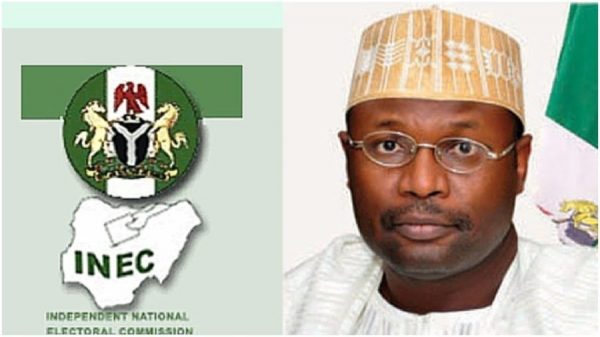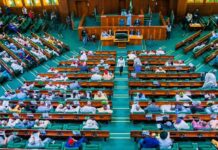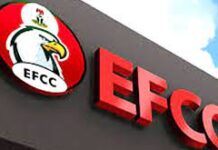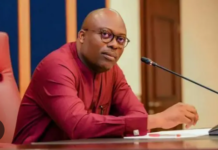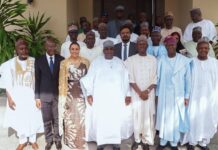The National Electoral Offences Commission and Tribunal Bill under consideration at the National Assembly has been described by many concerned Nigerians as a worthy and noble initiative that would hopefully sanitize the dangerous electoral environment. It is hoped that the commission will bring discipline and decorum into Nigerian politics and tackle the crude behaviour patterns exhibited by political actors since independence. It will also help reduce the excesses of our politicians who do not yet see reasons to play the electoral game by the golden rule.
The bill has rekindled hope among the populace that the electoral process would soon be repositioned on the right path to maturity since it hopes to make those who choose to thwart the democratic process for selfish reasons and those who decide to become the enemies of democracy by illegally interfering with the electoral processes to pay for their crimes.
Supporters of the bill, including civil society groups, are working feverishly round the clock to ensure that the initiative becomes law before the next general elections because the wholesale entry of money politics into the nation’s democratic space has made it imperative to expeditiously pass the Electoral Offences Commission bill before the 2023 polls.
Many are however asking why the Electoral Offences Commission and Tribunal law has become necessary for Nigeria. The simple explanation is that the nation’s electoral practice has suffered so much violence since the 1960s and the citizens have been blatantly deprived of the dividends of good governance through increasing malpractices starting from the First Republic. Election violence and rigging reached the peak during Chief Olusegun Obasanjo’s second tenure campaign when the ruling Peoples Democratic Party declared that the general elections of 2003 was a do or die affair and it was observed with several levels of violence, intimidation and electoral malpractices.
Although, what happened in 2003 was not the first time that violence would taint the nation’s electoral contest, the election marked a turning point in the general attitude of the nation’s crafty politicians. A sizeable number of political actors thereafter graduated by adopting and perfecting their ingenious ways of grabbing power by force or by fraudulent means knowing that the corrupt system has entrenched and promotes the winner takes all mentality.
The Independent National Electoral Commission (INEC) disclosed recently that more than 800,000 electoral offences were allegedly committed in the 2011 general elections but the commission could not prosecute all the perpetrators, apart from 125 cases in court at the moment, because it is handicapped and over-burdened with other electoral matters.
Hopefully, the 8th National Assembly of 2015 to 2019 was concerned with what happened during the elections and started the process of introducing reforms into the electoral system that included the electoral offences commission. A House of Representatives member, Hon. John Dyegh, who initiated the bill tried his utmost best then but the effort was stalled until the current session when he was joined by three other members of the legislature, namely Aishatu Dukku, Francis Charles Uduyok and Kingsley Chinda to sponsor a new bill for the establishment of the offences commission.
The objectives of the National Electoral Offences Commission and Tribunal, according to the House of Representatives; which recently organised a public hearing on the Electoral Offences Bill, was to properly criminalize electoral offences by introducing stiffer penalties against such activities as part of the nation’s laws.
Specifically, the National Electoral Offences Commission and Tribunal will be empowered by the law under consideration to investigate every infraction in the election process, arrest perpetrators and prosecute persons or corporate entities and groups alleged to have committed an offence covered by the Bill, the Electoral Act or any other law concerning elections in any state in Nigeria and those alleged to have corruptly distorted or destabilized the electoral process.
The Commission was also empowered to adopt measures to prevent, minimise and eliminate electoral offences throughout the country and to seize any property, moveable or immovable, that were deployed or suspected to have been used to commit an electoral offence. It will also have the power to initiate, develop and implement special training programmes for law enforcement officers and other personnel in its employment on election related law enforcement techniques, methods of detecting electoral offences, collection of evidence and successful prosecution of alleged electoral offenders.
Many Nigerians have wondered whether the Electoral Offences Commission and Tribunal will be able to effectively sanitize the electoral process and improve democratic practice in Nigeria. The Chief Press Secretary to Professor Mahmood Yakubu, Chairman of the Independent National Electoral Commission (INEC), Chief Rotimi Oyekanmi, answered public concern on the matter in the affirmative when he told a public forum recently that INEC vehemently supports the establishment of the Electoral Offences Commission because it will help in the investigation and prosecution of electoral offences.
According to Oyekanmi: “The system as we have it now has become unacceptable, looking at the number of people that were killed and maimed and the lives destroyed and nobody has been held accountable. We need an electoral offences commission so that we can specifically take offenders there.
“What we are saying is that there has to be a commission that will be independent and would have its own power to arrest, investigate, prosecute and apply sanctions on those who send thugs out to disrupt elections, kill people and then nothing happens to them.”
Continuing, he said, “We have done many things over the last several years to improve the integrity of elections and we found through the post-election reviews that the major problem [of elections in Nigeria] is never at the polling units. The problem starts at the collation level where people now begin to suspect what is going on, especially if the results are not coming out as quickly as people expect.”
Some civil society groups are however not happy that the bill has not sailed smoothly so far because there are pockets of objections, especially from the Economic and Financial Crimes Commission (EFCC), which opposes the creation of a separate body with its expected bureaucratic accoutrements and enlarged attachments. The EFCC has proposed instead that the functions of the commission should be assigned to existing institutions that are already performing watchdog functions on the nation’s electoral theater and actors.
The anti-graft agency kicked against the initiative, saying also that creating a National Electoral Offences Commission would amount to duplication of efforts and the functions already performed by institutions such as the Police, the EFCC and the Independent Corrupt Practices and related offence Commission [ICPC].
The INEC has however remained adamant and countered the EFCC objections by supporting the parliament to establish the Commission. The electoral umpire knows where the shoes hurt as it backed-up its position with the assertion by Rotimi Oyekanmi, who argued that: “The EFCC is a creation of the law. There were high courts, both at the state and federal levels. Do those high courts address financial crimes? No. That was why anti-corruption agencies like the ICPC or EFCC had to be created. So, if the laws existing before the ICPC and EFCC were created had been working perfectly, there would have been no need for the creation of the anti-corruption agencies.”
The Independent National Electoral Commission (INEC), insisted it supports the bill because it is overwhelmed by the responsibilities and mandate of election duties and does not have the resources or wherewithal to also prosecute election offences.
INEC argued that the National Electoral Offences Commission and Tribunal, when established, will investigate all electoral offenses created in any law relating to elections in Nigeria and prosecute offenders in line with the provisions of Section 174 of the 1999 Constitution.
Meanwhile, the debate about whether Nigeria needs a National Electoral Offenses Commission and Tribunal has already gone viral. It has generated tons of support because members of the public understand that the initiative will help in curbing the menace of vote buying and other associated electoral malpractices. The National Assembly will do well not to listen to the objections from enemies of democracy, especially the very powerful political blocks that want the freedom to continue manipulating the electoral process to their advantage to enable them hoist leaders of their choice on the populace.
The National Assembly should also look at the merits in the EFCC position and its objections and the fact that the agency went further to seek that instead of a new commission, the electoral offences bill should canvass and compel the government to ensure that already existing institutions like the EFCC and the ICPC should be strengthened and empowered with necessary tools and training to arrest and prosecute electoral offenders.
There is no gain arguing whether or not the EFCC option will be a cheaper alternative to creating a separate commission that will add to the already huge cost of governance in the country. However, proper considerations should be given to the fact that the magnitude of the electoral offenses that follows every general election in the country are so huge. The monster has eaten so deep into the psyche of the average politician and may actually require a new commission for the problem to be effectively tackled and removed from the political stage. Ends.



